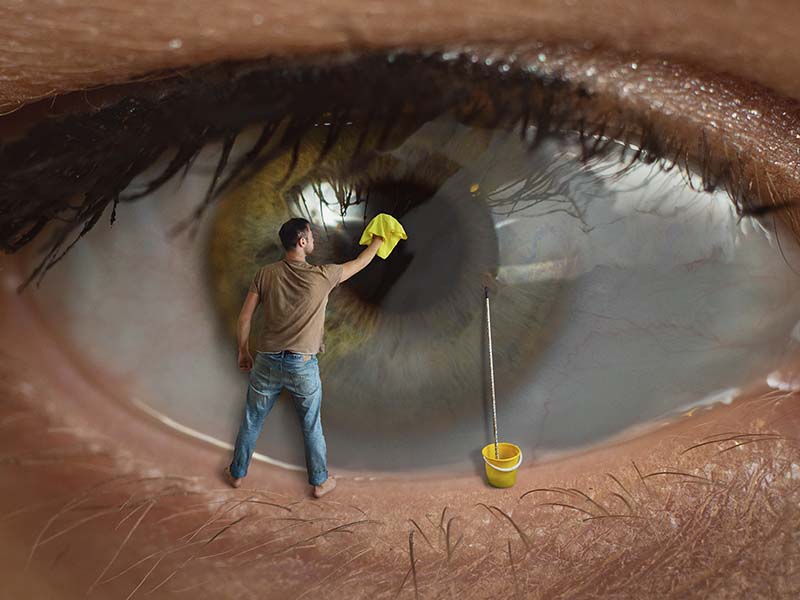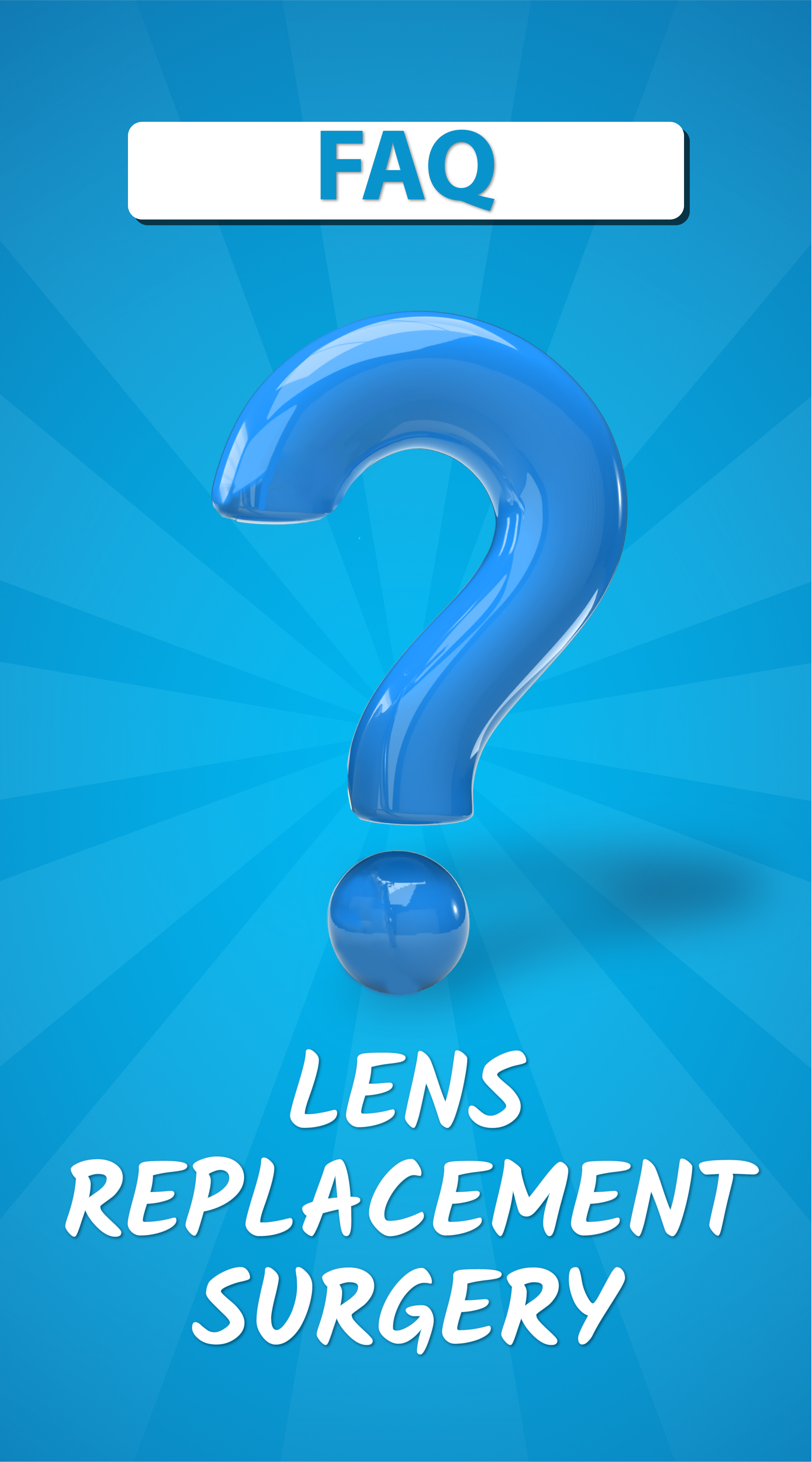




1. How long the treatment takes?
The whole process takes about 15 to 30 minutes per eye. You can also get each of eyes treated at separate occasions, reducing the individual surgery time even further.
2. How exactly lens replacement helps patients?
In lens replacement surgery or refractive lens replacement, the lens of your eye is replaced with a synthetic lens, making your vision clearer and brighter. This premium lens can help correct farsightedness, short-sightedness and reading vision. It is a simple procedure with a high success rate.
3. Why should you go for lens replacement treatment?
Patients who can't receive laser eye treatment may see lens replacement surgery as an effective alternative. This includes individuals with thin corneas, high prescriptions, or other complications. Older patients over 50 years of age may choose lens replacement surgery as they have a higher risk of developing cataracts
4. Is Lens Replacement treatment safe?
Lens replacement surgery is considered one of the safest medical procedures that allows patients to return to normal life within a few days. There may be minor complications such as eye redness and itching that can be resolved with additional treatment.
5. How long would it take one to recover?
Your vision will gradually improve over the first few weeks following treatment, with optimum vision usually achieved after about 4-6 weeks. Most people return to work about three days after having lens replacement surgery.
-0218.jpg)